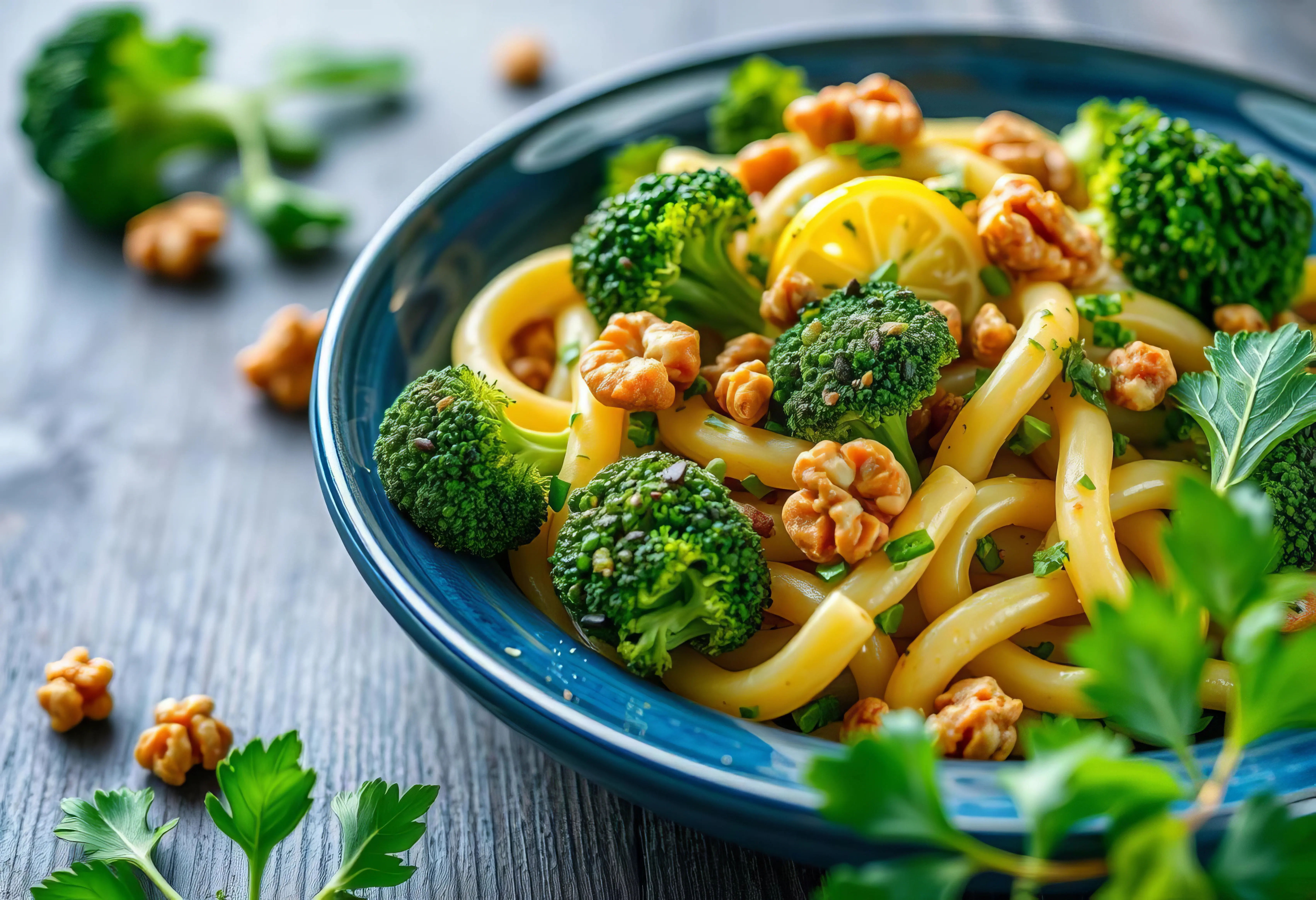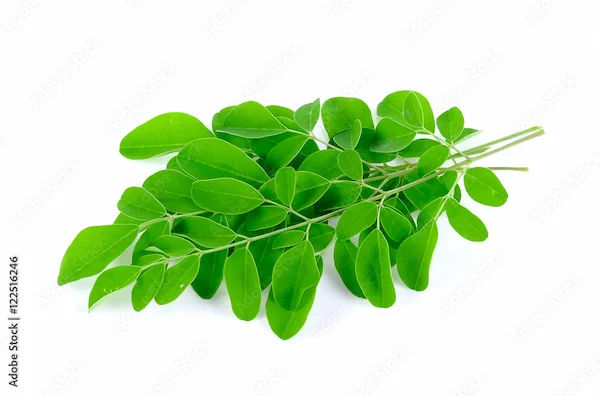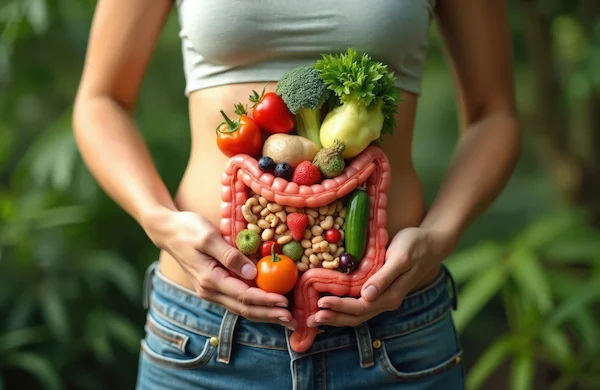High-Protein Vegetables for Muscle Growth
Discover the best high-protein vegetables that support muscle growth. Learn how plant-based options like spinach, broccoli, and peas can help fuel your fitness and recovery naturally.

Written by Dr. Rohinipriyanka Pondugula
Reviewed by Dr. M L Ezhilarasan MBBS
Last updated on 24th Jul, 2025

Building muscle isn’t just about lifting weights—it also requires the right nutrition. While most people associate protein with meat, eggs, or dairy, did you know that certain vegetables can also be excellent sources of protein? Whether you're a vegetarian, vegan, or simply looking to add more plant-based protein to your diet, high-protein vegetables can support muscle growth and overall health.
In this article, we’ll explore the best high-protein vegetables, how they help with muscle growth, and simple ways to include them in your meals.
Why Protein is Important for Muscle Growth?
Protein is made up of amino acids, which are the building blocks of muscles. When you exercise, especially strength training, your muscle fibres experience tiny tears. Protein helps repair and rebuild these fibres, making them stronger and bigger over time.
For muscle growth, experts recommend consuming 0.7 to 1 gram of protein per pound of body weight daily. While animal proteins are complete (containing all essential amino acids), many plant-based proteins can also meet your needs when combined properly.
Top High-Protein Vegetables for Muscle Growth
Here are some of the best vegetables packed with protein:
1. Edamame (Soybeans)
- Protein: 18g per cup (cooked)
- Benefits: A complete protein, rich in fibre, iron, and calcium.
- How to Eat: Enjoy steamed as a snack, in salads, or blended into hummus.
2. Lentils
- Protein: 18g per cup (cooked)
- Benefits: High in fibre, iron, and folate, great for muscle recovery.
- How to Eat: Add to soups, stews, or make lentil patties.
3. Chickpeas (Garbanzo Beans)
- Protein: 15g per cup (cooked)
- Benefits: Packed with fibre, zinc, and magnesium for muscle function.
- How to Eat: Roast for a crunchy snack, blend into hummus, or add to curries.
Consult Top Nutritionists For A Personalised DIet
4. Black Beans
- Protein: 15g per cup (cooked)
- Benefits: High in antioxidants, fibre, and energy-boosting carbs.
- How to Eat: Use in tacos, burritos, or bean salads.
5. Green Peas
- Protein: 8g per cup (cooked)
- Benefits: Contains B vitamins, iron, and vitamin K for bone health.
- How to Eat: Add to pasta, rice dishes, or blend into soups.
6. Spinach
- Protein: 5g per cup (cooked)
- Benefits: Rich in iron, calcium, and nitrates for endurance.
- How to Eat: Use in smoothies, omelettes, or sauté as a side dish.
7. Brussels Sprouts
- Protein: 4g per cup (cooked)
- Benefits: High in vitamin C, fibre, and antioxidants.
- How to Eat: Roast with olive oil or add to stir-fries.
8. Asparagus
- Protein: 4g per cup (cooked)
- Benefits: Contains folate and vitamin K for muscle recovery.
- How to Eat: Grill, steam, or add to pasta dishes.
How to Maximise Muscle Growth with Plant-Based Protein?
While vegetables provide protein, some plant proteins are incomplete (missing certain amino acids). Here’s how to ensure you get all essential amino acids:
- Combine different protein sources (e.g., beans + rice, lentils + quinoa).
- Include a variety of vegetables, grains, nuts, and seeds in your diet.
- Consider plant-based protein powders (pea, soy, or hemp protein) if needed.
Easy Ways to Add High-Protein Vegetables to Your Diet
1. Smoothies: Blend spinach, peas, or plant-based protein powder with fruits and almond milk.
2. Stir-Fries: Add edamame, chickpeas, or tofu with colourful veggies.
3. Salads: Top with lentils, black beans, or roasted chickpeas.
4. Snacks: Roasted chickpeas or edamame make great high-protein snacks.
Lifestyle Tips for Better Muscle Growth
- Strength Training: Engage in weight lifting or resistance exercises 3-4 times a week.
- Stay Hydrated: Water helps transport nutrients to muscles.
- Get Enough Sleep: Muscles repair and grow during rest.
- Balanced Diet: Include healthy carbs (whole grains) and fats (nuts, avocados) for energy.
When to Consult a Nutritionist?
If you’re struggling to meet protein needs or want a personalised diet plan, consider consulting a nutritionist. Apollo24|7 offers expert diet advice and customised meal plans to support your fitness goals.
Conclusion
You don’t need to rely only on meat for muscle growth—high-protein vegetables can be just as effective! By including a mix of lentils, beans, peas, and leafy greens in your meals, you can fuel your muscles naturally while enjoying a balanced, plant-rich diet.
Remember, consistency in diet and exercise is key. Start small, experiment with recipes, and watch your strength and health improve!
Consult Top Nutritionists
Consult Top Nutritionists
Ms. Lakshmi Tejasvi
Clinical Nutritionist
14 Years • M.Sc - Clinical Nutrition
Hyderabad
Vibgyor Nutri, Hyderabad
Dr Sumanth R
General Physician
2 Years • MBBS
Bengaluru
PRESTIGE SHANTHINIKETAN - SOCIETY CLINIC, Bengaluru

Dr. Bhukya Pavan Kalyan
General Physician
5 Years • MBBS DNB Paediatrics
Bengaluru
PRESTIGE SHANTHINIKETAN - SOCIETY CLINIC, Bengaluru

Dr. Ramalinga Reddy
General Physician
5 Years • MBBS MD General medicine
Bengaluru
PRESTIGE SHANTHINIKETAN - SOCIETY CLINIC, Bengaluru
Mrs Sneha P V
Nutritionist
10 Years • Master of science in Food and Nutrition
Bengaluru
Apollo Clinic, Sarjapur Road, Bengaluru
Consult Top Nutritionists For A Personalised DIet
Ms. Lakshmi Tejasvi
Clinical Nutritionist
14 Years • M.Sc - Clinical Nutrition
Hyderabad
Vibgyor Nutri, Hyderabad
Dr Sumanth R
General Physician
2 Years • MBBS
Bengaluru
PRESTIGE SHANTHINIKETAN - SOCIETY CLINIC, Bengaluru

Dr. Bhukya Pavan Kalyan
General Physician
5 Years • MBBS DNB Paediatrics
Bengaluru
PRESTIGE SHANTHINIKETAN - SOCIETY CLINIC, Bengaluru

Dr. Ramalinga Reddy
General Physician
5 Years • MBBS MD General medicine
Bengaluru
PRESTIGE SHANTHINIKETAN - SOCIETY CLINIC, Bengaluru
Mrs Sneha P V
Nutritionist
10 Years • Master of science in Food and Nutrition
Bengaluru
Apollo Clinic, Sarjapur Road, Bengaluru
.webp)



